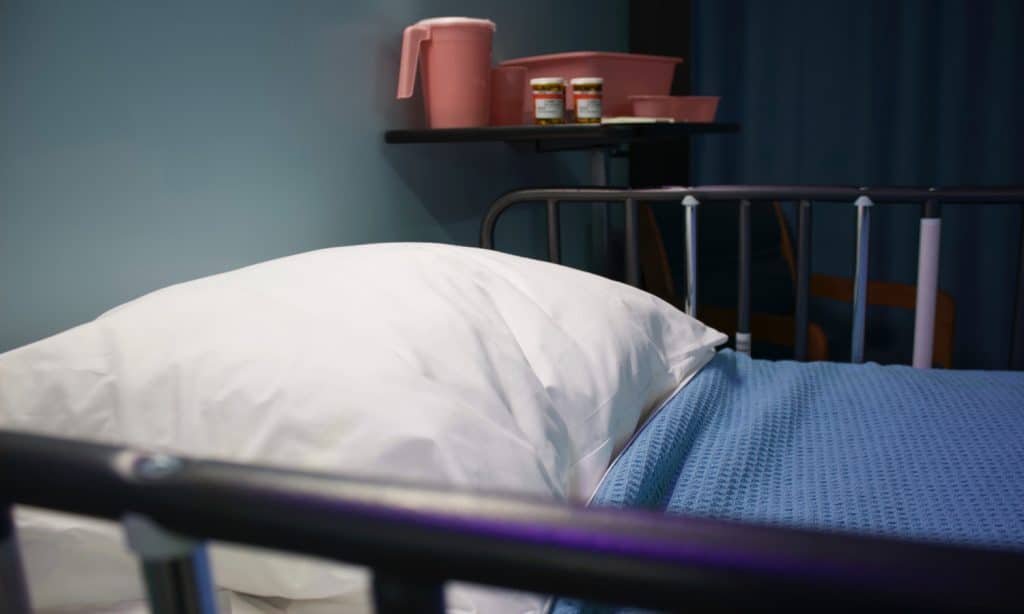Business
Should Cannabis Be Part Of Hospice Care?

A life-threatening illness is one of the most frightening experiences anyone can go through. No one wants to be diagnosed with a terminal illness, and no one wants someone they love diagnosed with the same thing. For almost 2 million people each year, they enter hospice for the last part of their life. It is hard on the patient and the loved ones. Should cannabis be part of hospice care? In some legal states, hospice staff are allowing marijuana to ease suffering, especially for cancer.
As Americans continue to age, the risks of terminal illnesses increase with more people getting admitted to hospitals and hospices. The Centers for Disease Control (CDC) announced that there are an estimated 1.7+ million people in hospices receiving care from varying life-threatening illnesses. This number is a tremendous increase from what was obtainable in the last 20 years. In those hospices, the patients receive a special kind of care that slows the painful process.
The care given to patients is provided by compassionate individuals who are 100% available to make the last life phases very comfortable. While these hospices are doing their best, there are still instances where some patients don’t get better with the care they receive.
Of course, this is a problematic situation, and it has made medical experts seek solutions for hospices, and marijuana is one of the most viable ideas they explore.
Despite the good intentions, the legal status of marijuana affects its use and effectiveness in hospices. For example, although some states have legalized marijuana, it is still not legally accepted at the federal level. The federal level’s lack of support makes it difficult for some healthcare providers to prescribe cannabis for their patients in hospices.
Marijuana in hospices
Marijuana is utilized in hospice care to ease patients suffering as it plays a significant therapeutic role for patients dealing with the emotional despair that comes with a terminal illness.
Hospices are turning to marijuana as a way of reinventing their approach to Medicare for patients. These hospices want a more patient-centric care experience that eradicates the idea that they are cold, ineffective, and unwelcome.
Therefore, hospices in America need to incorporate more effective treatment and care options that help them feel like they are making daily progress. In addition to marijuana, the hospices also integrate additional treatment options such as music, thoughtful quality care, and family moments to make the treatment options relatable.

But medical marijuana has become a new focus for these hospices. As Americans’ attitudes towards marijuana change (from suspicion to acceptance), more hospices are encouraged to consider it as a treatment option.
Currently, 87% of Americans support the utilization of medical marijuana as a treatment option for terminally sick patients. More so, three in five Americans (this is about 58%) express strong support for medical marijuana. So how do hospices use marijuana?
How hospices use marijuana
Primarily, hospices use marijuana as a care treatment alternative to ease the patient’s spiritual and existential suffering. The mild euphoria marijuana offers give the patient a sense of well-being which eases the body, mind, and spirit as they come to terms with the possibility of death.
In 2019, a study showed the impact of cannabis and CBD on hospice and palliative care places, with data drawn from over 300 care professionals from 40 American States. The professionals offered “overwhelming support” for marijuana use in hospices regardless of its legal status in the state.
With such factual details and preference for marijuana in hospices, one can only ask, “How does it help those in the hospices?” Here are answers to that question:
Pain reduction in patients
Pain reduction is one of the most prominent benefits of marijuana used in hospices. The patients sometimes experience excruciating pain, which masks them uncomfortable, making their stay at the hospice unpleasant.
But with medical marijuana treatment, pain is reduced and replaced with a euphoric sensation that eases the patient’s mind, thus making them numb to pain. This health benefit of marijuana can only be effective when the substance is used consistently.
Enhancement of the senses
Cannabis is an enhancer that heightens patient sensory perceptions and awareness, thus leading to a better appreciation of tastes, senses, and music. Remember that some people in hospices are older individuals who gradually lose their ability to recognize feelings and their sense of taste. But when marijuana is administered, the patient’s sense of awareness is heightened, enabling them to appreciate every moment even as their days are numbered.
Increases appetite
The patients in hospices often struggle with their appetite because of the intense treatments (for example, cancer patients). Decreased appetite is also prevalent because they are emotionally down, with the illnesses taking a toll on their mental health. But CBD is an appetite-boosting compound that encourages them to eat regularly and also snack in between meals. A hospice patient will have a greater chance of better managing illness when he or she consistently eats nutritious meals.
Eases anxiety
Anxiety is a common symptom that hospice patients experience due to the fear of death and worries about their families. But when medical marijuana is administered the THC and CBD, it contains impacts such as anxiety levels.
THC, when given in smaller doses, decreases anxiety, and CBD also does the same, thus helping the patient feel relaxed and calm, which provides a significant boost to their health.
Bottom Line
Medical experts are increasingly excited at the enormous potential of marijuana. Globally, people are beginning to appreciate the value of cannabis. Marijuana products that have been tested and approved for use should be well-integrated into the healthcare system because of their immense benefits.
Experts and caregivers at hospices derive incredible benefits from cannabis. Both of the plant’s recreational and medicinal properties are highly valued by caregivers and patients. However, for marijuana to reach its lofty potential in hospices in the future, there must be a unified legal status of cannabis from federal to state levels.
Until we have such a unified status, marijuana will continue to impact the lives of hospice patients in the ways currently available, helping them manage their terminal illnesses.
Source: https://thefreshtoast.com/medical-marijuana/should-cannabis-be-part-of-hospice-care/